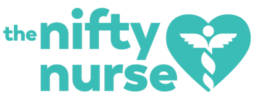As a nurse, you will be expected to provide high-level patient care and show excellent communication skills. Saying the wrong thing or appearing ill-prepared during an interview can be the difference between a job offer and rejection.
Most interview questions involve testing your knowledge, communication, and problem-solving skills. Additionally, there are questions designed to showcase your personality and assess if you are the right fit for the position.
To prepare for your upcoming job interview, it can be helpful to know the common questions you may be asked. This blog post outlines some of the most common interview questions for nursing positions so you can be prepared and make a great impression.
1. “Why Did (or Do) You Want To Be a Nurse?”
This is a question that interviewers frequently ask, so you should have an answer prepared in advance. Be honest and explain why nursing is the right career choice for you. Talk about your passion for helping people and any experiences that inspired your decision to become a nurse. Make sure to show your enthusiasm and dedication to the job.
2. “What Are Your Strengths and Weaknesses as a Nurse?”
For this question, pick out two or three strengths you have as a nurse and explain why they are important and how they can add value to the role. For example, you could talk about your empathy for patients or your ability to think on your feet. When discussing your weaknesses, make sure to provide concrete examples of how you’ve worked on improving them.
3. “Tell Me About a Time When You Had To Deal With a Difficult Patient, Family Member, or Friend.”
This type of question tests your patience and ability to handle difficult situations. Talk about a time you had to deal with an unhappy or difficult patient or family member and explain what steps you took to resolve the problem — showing that you can remain calm under pressure and use empathy will demonstrate your problem-solving skills.
4. “Can You Explain Situations Without Using a Lot of Medical Jargon? Give an Example.”
This question is designed to test your ability to communicate complex medical information in a way that the patient or their family will understand. When answering, explain a medical situation in plain language. Imagine that you are talking to a patient and making sure the language is understandable. Make sure to use simple words and avoid any overly technical terms.
5. “What Do You Consider To Be the Major Obstacles Nurses Face Today”
This open-ended question allows you to showcase your knowledge of the nursing profession and the healthcare system. Talk about the current challenges you’ve noticed, such as staffing shortages, nurse burnout, budget cuts, or changes in healthcare regulations, and explain how you believe nurses or hospitals can address these issues.
6. “Explain a Situation in Which You Demonstrated Your Collaborative Skills.”
This question is designed to test your ability to work with others. Explain a situation in which you had to display teamwork and collaborate to accomplish a goal or solve a problem. Show that you can work well with others and proactively contribute to the team to get results.
7. “Describe a Time You Were Under a Lot of Pressure. How Did You Handle It?”
This question is designed to assess your ability to stay calm in tough scenarios. Talk about a time when you faced a difficult situation and explain how you managed it. Show that you can remain focused and meet your goals even in stressful situations and that you are capable of making quick, informed decisions.
Final Thoughts
Nursing interviews are not to be taken lightly. You must be prepared for the interview to make a good impression and increase your chances of getting the job. Knowing some of the most common questions will help you feel more confident and give you an advantage over other applicants.
Be prepared to answer questions about your nursing experience and provide concrete examples of times when you performed well. This will help give the interviewer a better understanding of your skillset and show that you are confident in your ability to handle the role. With the right preparation, you can ace your nursing interview and get the job of your dreams! Good luck with your upcoming interview!
